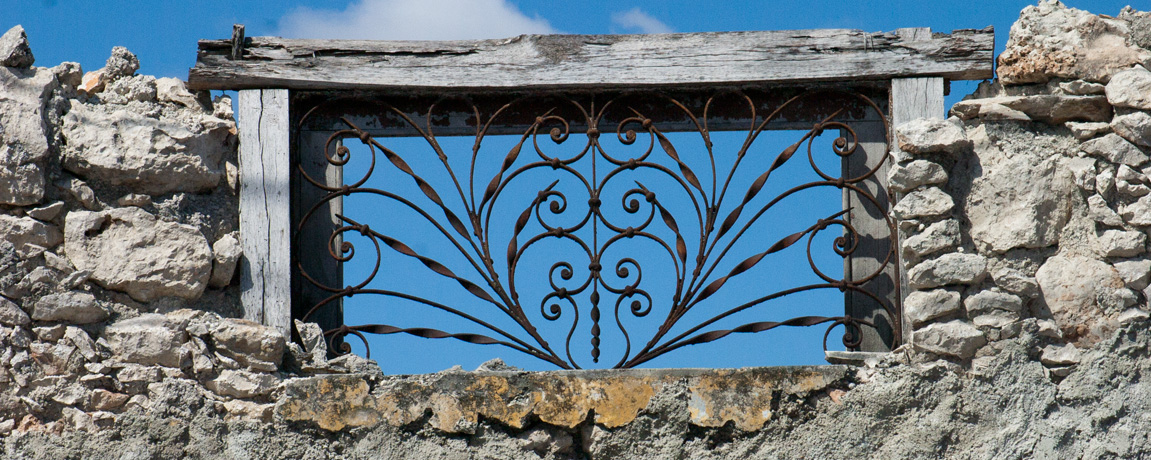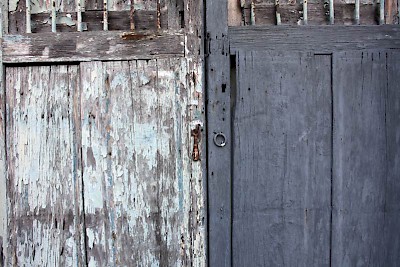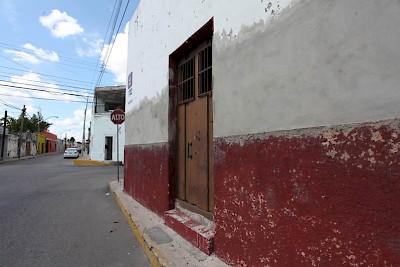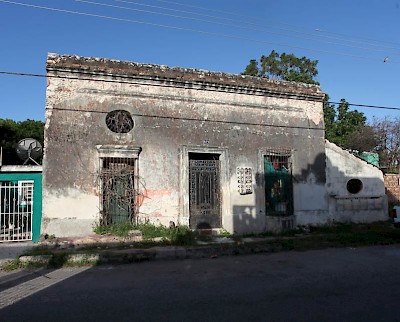Mexico Real Estate Horror Stories
Nearly every week, we see another article in the press about expatriates buying real estate in Mexico. When we first wrote this article, we had seen one from the Kansas City Star, reprinted from the Wall Street Journal. It was about retired and soon-to-be-retired baby boomers buying real estate in the Yucatan and on the Mayan Riviera.
Here are some excerpts:
A big cadre of American baby boomers looking to retire someplace sunny and cheap is fueling a land rush in the Riviera Maya, an idyllic slice of Mexico’s Yucatan Peninsula... But many land-seekers are encountering obstacles, including skyrocketing real estate prices, confusing laws and con artists... The land rush is occurring at the beginning of a demographic tidal wave. With more than 70 million American baby boomers expected to retire in the next two decades, many without adequate pensions or health plans, some experts predict a vast migration to warmer — and cheaper — climates. Often such buyers purchase a property 10 to 15 years before retirement, use it as a vacation home, and then eventually move there for most of the year. Developers increasingly are taking advantage of the trend, building gated communities, condominiums and golf courses...
Mexico, already thought to be home to as many as 1 million American citizens, or roughly a quarter of all U.S. expatriates, is set to get the lion’s share of new arrivals...
No place has boomed in recent years like the state of Quintana Roo in Mexico’s far southeast corner. Anchored by the high-rise resort destination of Cancun at one end and cosmopolitan Playa del Carmen an hour to the south, Quintana Roo is the country’s fastest-growing state, with over a million residents. An estimated 1,500 to 3,000 American citizens live there more than six months out of the year...
If you read the article in its entirety, you'll see a lot of references to "unscrupulous" deals, "problems", "obstacles", "confusing laws" and "con artists". There's the developer in Baja California who sold condos built on ejido land and afterwards all the tenants were evicted. There's a couple near Puerto Vallarta who lost their ocean view when local Mexican developers built a resort between their beach house and the water. There's a woman near Tulum who put a down payment on ejido land but then disappeared for three years and the seller assumed she was dead, so he reoccupied it. But she wanted it back. Then a dead body showed up on the property.
Lions and tigers and bears, oh my!
Not Kansas, Kanasin...
It's true that we are not in Kansas anymore, but like "The Wizard of Oz", all of the news stories we read seem to reuse the same actors in a rather familiar plot. Act I: Gringos are moving to Mexico in record numbers. Act II: Mexico is a lawless land where it is "not uncommon" for Gringos to be duped, or worse (insert the same two or three examples from above). Act III: Let these cautionary tales serve as a warning. Act IV: Here's what you need to know to avoid being "victimized" (i.e. "there's no place like home").
It never fails to amuse us how the Press relies on fear to sell papers, in this case portraying Mexico as such a dangerous, lawless and corrupt country. We have purchased five properties in Mexico. Four are here in the Yucatan Peninsula and one is in the state of Michoacan. We have many clients who are real estate agents, and through them we are personally aware of scores of real estate transactions among the hundreds conducted here each year. In over ten years of living here now, we have only heard of two or three "unscrupulous" deals out of a thousand.
Frustrating Process
That's not to say we haven't met several expatriates who were frustrated by the process of buying property in Mexico. Many of these are head-strong, impatient types who bring their own ideas of what the rules should be and don't take no for an answer, even though that is one word we share with Spanish. Mexico is a different culture that speaks a different language and has different laws arising from a different history. There is much to learn and we always recommend you don't go it alone. Even after living here for as long as we have, knowing the people we know and having our experience, we would never consider buying or selling a property in Mexico without the two most important ingredients: a Mexican accountant and a Mexican lawyer. And for most of the time, we would throw in that third almost-essential ingredient, a knowledgeable Mexico-based real estate agent.
Por Ejemplo...
For example, ejido land causes "problems" for those who don't understand it. The majority of Mexico's population is Native American or "indigenous". They were not killed or herded off to reservations like in the United States. During the Mexican Revolution, the government took land away from large haciendas that had acquired it illegally and placed it in trust to the indigenous inhabitants who had lost it. This land is technically owned by the Mexican Government but used by local indigenous communities. In recent years, laws have been enacted that allow the heirs of the original families to whom the land was entrusted to privatize and sell it, but the process can take years as each interested party is tracked down for their signature. If you deal directly with a member of an ejido, he or she has the right to take a down payment in return for a promesa, or agreement to sell you his share after it is privatized. He or she will undoubtedly offer you a great price. You may be tempted. But it is a highly speculative deal because the ejido may never be privatized, at least not in your lifetime. We suggest you do not even consider this kind of deal. But if the Mexican citizen in question has lived through the division of the ejido and has a clear title, then go for it. Some of the best property we know of has been purchased that way.
Obtain the Basics
We have heard of several cases where expatriates without a clue try to deal directly and end up stymied or frustrated. In general, they are over-confident and trying to find a "better" deal and avoid paying a commission. For most of us, this is not a good idea. Find a good real estate agent who has references. He or she will hook you up with a good Mexican lawyer (called a notario), and if you need one, an accountant (called a contador). They will help you learn what to expect and how to follow the rules. Then, follow the rules. In many places in Yucatan (and throughout Mexico), you will have to purchase your land through a bank trust (called a fideicomiso). We suggest you might consider a fideicomiso even if you are in the zone where you don't have to. It will ensure you a clear title and it offers some tax advantages, too. Within 50 kilometers of the coast, it is required by law. There are some rumblings in Mexico City that they may be doing away with the fideicomiso requirement, but as of late 2015, that has not happened.
Booming From Coast to Coast
What the Kansas City Star says about the real estate boom in Playa del Carmen, Tulum and Cancun is definitely being seen here in Merida as well. You cannot drive down a street in Merida for more than three blocks in the centro historico of Merida without seeing at least one major colonial renovation going on. And of course, most of the people paying for those renovations are coming from the United States, Canada or elsewhere, because most local Yucatecos with money wouldn't dream of living in el centro. Just like in the United States 30 years ago, they are moving out to the suburbs, either in gringo-like, ranch-style homes or in gated communities like La Ceiba, the Yucatan Golf Club or Xcanatun residential communities, or even those high-rise Yucatan Country Towers in the Alta Brisa neighborhood.
Meridanos are selling the homes of their tias (aunts) and abuelas (grandmothers) to the incoming expatriates, who are salivating at the beauty and potential of these old colonial homes. In the USA of course, you can't find these stone-walled, tile-floored homes with high, beamed ceilings and arch-lined corridors for love or money, let alone for the price of a down payment on a tract home in California.
Despite the somewhat negative tone of most news articles, they often do tell a "rare" success story. The Kansas City Star story talks about the abandoned mansion of the famous and now deceased drug lord Pablo Escobar, that was turned into the Amansala Hotel and EcoResort by a resourceful gringa. That was a few years ago now, and that was just the beginning. The beach in Tulum is now rimmed with a plethora of successful small hotels with restaurants, sushi bars and yoga studios, Playa del Carmen and other beach communities are still growing like crazy and even Merida is becoming hip and popular (see link below).
So hundreds of Americans, Canadians and people from around the world, maybe thousands, are buying homes annually in Merida or on the nearby beaches of the Yucatan Gulf Coast for retirement, vacation rental income and investment. And more and more of those are moving down here every year. We have heard recently that over 7,000 expatriates live in Merida, a surprising number if you believe the 1,500-3,000 on the Mayan Riviera. Frankly, we did not think those numbers were accurate when that article was written (too low) and they have risen steadily since then.
We Working Gringos are just the visible tip of the Yucatecan expatriate iceberg, so to speak. An iceberg that has grown exponentially since this article was written and shows no signs of melting, even in this tropical heat!
****
Looking to buy real estate in Merida or Yucatan? Try our Real Estate in Yucatan section or the For Sale in Yucatan pages.
Looking to rent? Try our Vacation Rental Listings!
Want to know what it is like to LIVE in Yucatan? Try our Yucatan Survivor section!











Comments
Mexico Real Estate Investment 17 years ago
[...] Much is made about the minor inconvenience of buying Mexico real estate within 50 km (about 27 miles) of a Mexican beach or within 100 km (about 62 miles) of a Mexican border, even though the fideicomiso, with the bank holding the physical title, is one of the safest ways to own and manage property. However, any inconvenience of owning property through a fideicomiso is totally insignificant when compared to the risk of unknowingly purchasing ejido land. It is these cases that often make international headlines and fuel rumors that someone’s home was “confiscated” by the Mexican government. Sadly, such situations are ultimately found to be the “fault” of the purchaser and could have easily been avoided by conducting a simple title search through a reputable title company. A full discussion of this situation - and how to avoid it - can be found in Yucatan Living. [...]
Reply
CasiYucateco 17 years ago
Teri, the part that's a bit confusing on visas is this: If you want to work for a Mexican company, it is very difficult to get a visa because there are so many locals who need work. If you want to invest, starting your own business that will employ locals, then it's not too hard at all to obtain a visa. "The" FM-3 (category) really includes about 18 different types of visas. And then there is the FMT (tourist) and FM-2, etc.
Bottom line: If your husband is an experienced builder and he could hire local workers to work for him, it is *possible* that he could create an on-going business. Maybe remodeling homes as a contractor/coordinator for foreigners, or maybe just remodel a home or two at a time and put them up for sale. That's becoming quite the hobby in Merida.
I was fortunate enough to visit the Canary Islands about 20 years ago and it is truly a place of unmatched beauty and unusual history and landscapes. I really enjoyed being able to see Christopher Columbus' house on Gran Canaria. But, yes, it was expensive, as I guess most island living is...
Best of luck. Maybe we'll see you in town sometime(?) ;-)
Reply
Working Gringos 17 years ago
Teri,
You can stay here for three months on a tourist visa, or you can get a rentista FM3 visa which allows you to stay for a year. In order to get that, you must prove that you have either a guaranteed income or a certain amount of money in the bank (we think its $12,000 US). If all your husband does is work for himself, that is all he'll need.
Yes, it's easy to "self-build" here. Are construction materials expensive? More so than they used to be, but not as high as in the US. They don't use much wood here at all because a) the best wood (tropical hardwood) is endangered, more difficult to get b) wood doesn't stand up to termites very well and c) why use wood when there is all this stone and cement everywhere?
If you build within the city, you'll need permits. We don't know about outside the city limits.
Are architects expensive? Our architect charged us about $3000 US for plans and permits. And then most architects charge a percentage over and above the costs of building the house. That can range from 10 to 30%, from what we've heard.
Check out the entire Real Estate section on this website for a lot of information on building houses here, lists of architects and other information.
http://www.yucatanliving.com/category/real-estate-yucatan
Buena suerte!
Reply
teri 17 years ago
Thanks Working Gringos, that was most helpful.
You stated that getting a visa to work in Mexico is not easy, and most start up a business - don't you need a working visa to do that? In Spain all we required was a residencia which is obtainable (in fact you have to get one) after six months.
My husband won't have to work, but as a 'workaholic' I think he'd go mad if he didn't do some kind of work, paid or not. Is it difficult to self build there? are constructon materials expensive? I know the price of madera (wood) is expensive as it is here, but what about concrete, blocks etc etc? Would he have to get permits to build a house for himself (not commercially, but for our own use) and piscina (pool)? We are thinking about buying land and building a home to our own requirements. Are architects expensive?
Sorry again for all the questions, but I have plowed the internet and can not get any answers.
Many thanks again
Reply
Working Gringos 17 years ago
Teri,
Motul is indeed a very nice town, but you will not find any bilingual schools there. In fact, there are few bilingual schools even in Merida. We suggest you look at the article here in Yucatan Living about schools:
http://www.yucatanliving.com/yucatan-survivor/schools-in-merida-yucatan.htm
As far as we know, no, the teachers do not change every year.
There are many builders (called albañiles) here in Merida, and most likely they work for a lot less money than your husband will be willing to. Therefore, it might be hard for him to find work in that field. Getting a visa to work in Mexico is not easy... which is why many of us start our own businesses. There are many opportunities here to contribute.
Reply
teri 17 years ago
Buenos todo
I live on a small Spanish Canarian island, and the cost of living here is twice that of where I lived in the UK. We have looked at many places to live, but decided on Mexico, mainly for my 9 years old sons’ sake. He speaks very good Spanish and has got used to the Spanish way (manana, manana) and I think he would settle very well in Mexico and have a much better way of life. We are looking at Motul near Merida, which looks very nice. What I need to know is, are they any GOOD bi-lingual schools there. Although my son speaks good Spanish I do not, and I would like to participate as I did I the UK. My son currently goes to a very small spanish school in a little village, which is only as good as the teachers they have that particuler year. This year is fantastic, last year - well I'd rather not say what I thought of them.
Another question is: Do the teachers of the entire school change every year, as they do in spain? I feel this is a strange rule, but thats the way it is here.
My husband has a good fire department pension so that would cover the visa requirements for us all, but would he be allowed to work in Mexico; he is also an incredibly good builder.
Sorry for so many questions. Thanks in advance for any help
Reply
Lance 17 years ago
Hi James and Mel
Our beach home is in Telchac Puerto which is 40 Kms. from Progreso and about 65 from Merida. Progreso is popular with "Gringos" between Dec. to March but rent fairly cheaply by the month because it is off season for the Mexicans and there are a fair number of properties for rent. High season for the Mexicans is the two weeks at easter and July and Aug. and rent fairly high then. I can provide more info. to specific questions if you would like to e-mail me at tiki@sympatico.ca. The north coast is a great and up and coming area
Reply
Mel 17 years ago
Lance,
Thanks for your reply. I have been in touch with Gabriela. She is VERY responsive. I have a good feeling about her. I decided to take equity out of a rental property I have in the states to finance this purchase. It will end up being cheaper in the long run. If I decide later, I can always take money out of the mexico house later.
James Bar,
I too have questions about income potential in a vacation rental. I don't plan on a B&B just yet, but I would like to know how much rental income I could expect on a beach front property. I know the prices differ greatly between high & low seasons, but how likely is it that I can keep a place rented on a regular basis when I am not in it? I am looking at beach front within 40 minutes from Merida. Anyone have any idea?
Reply
JamesBarr 17 years ago
Good afternoon amigos,
I'm posting from Andalucia where I have a small BnB in a beautiful old house I restored 5 years ago. I previously restored houses in France.I'm looking for a new project and have been doing my due diligence on the Yucatan.
I see that there are a lot of old properties for sale in Merida and at first view the prices seem attractive. But when I compare the asking prices for "restored" against "unrestored" I get the impression that there is little or no margin when you add restoration costs to the price of the unrestored property. I would be investing on a 5 year view and need to feel that the fundamentals of the market are pretty solid.
A further thought is that with so many properties waiting to be restored, prices are unlikely to show much increase in value. I'm guessing that the majority of buyers are from North America but with all the sub prime woes right now this demand has probably dried up. Mexican buyers will have better contacts and doubtless avoid paying the "gringo premium". I've spent a fair bit of time in Brazil and know that there are two prices there! If you are buying to restore, your margin is generally in buying well!
With my previous projects I have run the houses as quality BnB's before moving onto the next project. There are some lovely looking guest houses in Merida but I would be interested to know what the demand for their rooms is like. Room rates seem very competitive and without a minimum of 60% occupancy I guess you can only expect a "lifestyle" level income.
Finally, does anyone have views on the tourist potential of Progresso. Is this a year round destination for both Mexicans and foreigners?
Hopefully someone out there can answer some of my questions.
Look forward to hearing from you.
Un saludo,
James
Reply
Lance 17 years ago
Mel
We own beach front property in Telchac Puerto and purchased it from Gabriela Cornelio at casayucatanrealestate.com. She lives in Merida and she and her husband Adam also have a beach front home on the coast near San Bruno. I am sure she can help you find property in the area and also help in finding a good lawyer.
A one time there was no local financing available and had to be purchased by cash, in many cases the baby boomers already had the money or financed it some other way from back home. I understand that now you may be able to finance it locally - check with the real estate agent or the lawyer. Closing costs generally run about $4,000 - 4500.00 for lawyer, fideicomiso and trust fees.
Merida and the coast are terrific, we love the area and wish you well in your home hunting
Reply
Investing in Mexico Real Estate? Beware of Ejido Land « Mexico Real Estate Investment 17 years ago
[...] April 28, 2008 by Khaki Scott Much is made about the minor inconvenience of buying Mexico real estate within 50 km (about 27 miles) of a Mexican beach or within 100 km (about 62 miles) of a Mexican border, even though the fideicomiso, with the bank holding the physical title, is one of the safest ways to own and manage property. However, any inconvenience of owning property through a fideicomiso is totally insignificant when compared to the risk of unknowingly purchasing ejido land. It is these cases that often make international headlines and fuel rumors that someone’s home was “confiscated” by the Mexican government. Sadly, such situations are ultimately found to be the “fault” of the purchaser and could have easily been avoided by conducting a simple title search through a reputable title company. A full discussion of this situation - and how to avoid it - can be found in Yucatan Living. [...]
Reply
« Back (100 to 111 comments)Next »